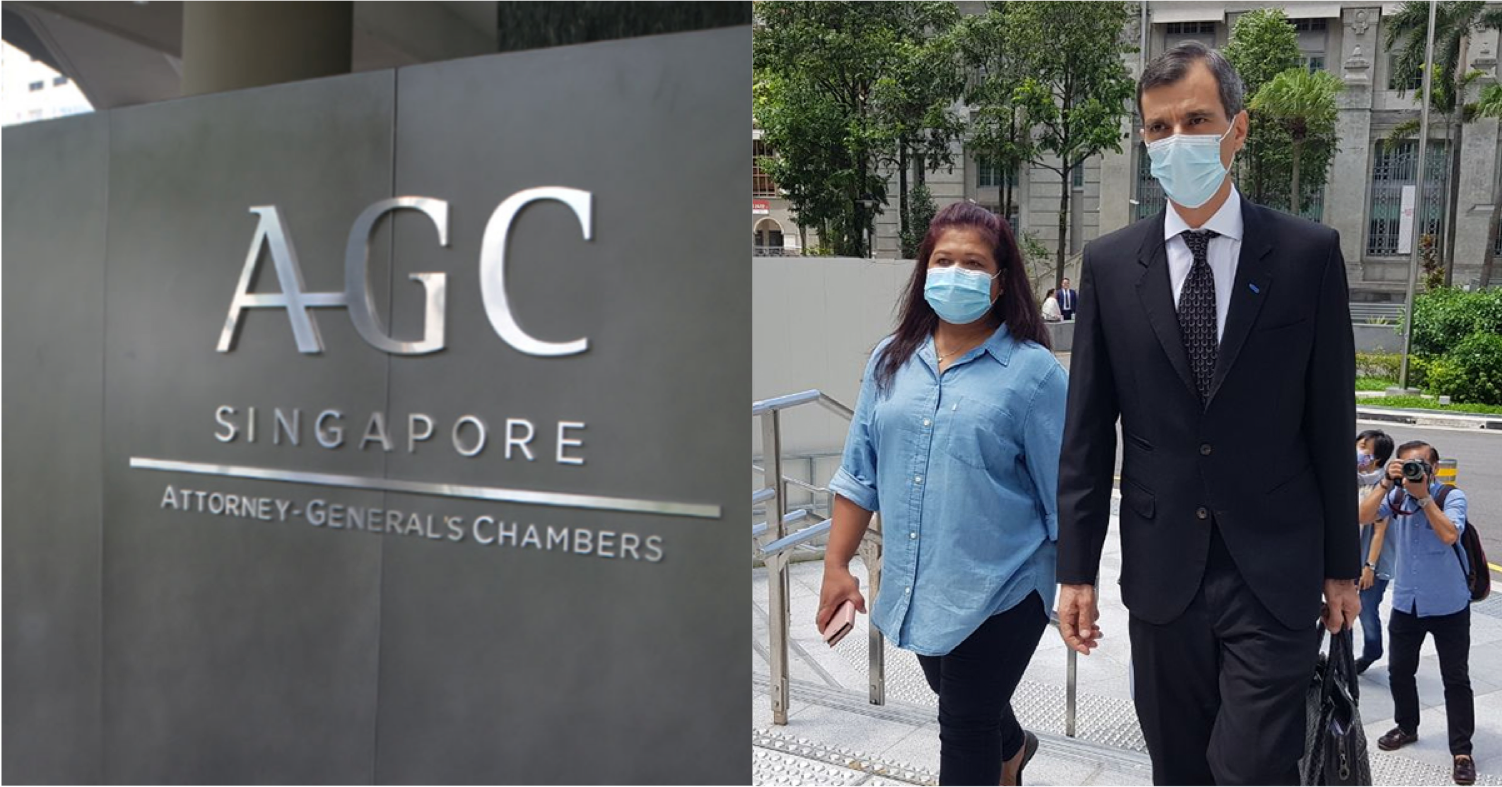In his Ministerial statement on Nov. 4, Minister for Home Affairs and Law K Shanmugam acknowledged that the Parti Liyani case had garnered a lot of interest from the public, and important questions had been raised by Members of Parliament (MP).
"Did the Police and the AGC (Attorney-General's Chambers) unfairly prosecute Ms Liyani because LML (Liew Mun Leong) was the complainant?" asked Shanmugam rhetorically.
He said that the question of whether Singapore has one law for the wealthy and socially connected, and another for the rest of society is of "central importance."
The credibility of the system rests on the principle that the rule of law applies equally to all, said Shanmugam, adding that he takes seriously the duty of the government to uphold that principle.
Police investigations
In his statement, Shanmugam also went over the facts of the case which culminated in the police report lodged by Liew himself on Oct. 30.
The report stated that the items (which Liew claimed were stolen) were found among Parti's belongings in boxes which she had packed to send back to Indonesia.
"Theft is an arrestable offence," said Shanmugam. He added that the police need to investigate further when there is reason to suspect that an arrestable offence has been committed.
Since Parti was out of the country, a police gazette was issued.
Charging decision was routine, no attempt by anyone to influence officers
Shanmugam also explained how the AGC arrived at the decision to charge Parti.
The minister said that when the AGC receives a file from the law enforcement agency, prosecutors assess whether a charge is appropriate and if any action should be taken.
This is typically cleared by a director and not brought to higher management (e.g. Chief Prosecutor, Attorney-General) unless they are serious or sensitive crimes.
"Ms Liyani's case was no different," said Shanmugam. "It went through the same routine, the charging decision was cleared at the Director level."
Theft files are routine matters handled by AGC, said Shanmugam, adding that for the last three years, the AGC received about 3,000 reports annually for theft in dwelling and theft as a servant offences.
The Police sent the case file together with their investigtion findings and recommendations to AGC on June, 5, 2017.
The material was reviewed by two Deputy Public Prosecutors (DPPs) who then sought further clarifications and sent the file back to the Police for further investigation. The Police did just that and came back with their findings for the AGC to review.
This back-and-forth between the police and AGC is normal. "In many cases, DPPs will look at the material and ask further questions," said Shanmugam.
"From the Police's and AGC's perspective, this was handled as a routine theft case. There was no attempt by anyone to influence them. The police report was filed and the matter was dealt with as such reports are usually dealt with," he added.
Decision to charge
Shanmugam explained that AGC decided to charge Parti for two main reasons:
- There was sufficient evidence to show that theft offences had likely been committed.
- It was in the public's interest to prosecute.
He said that based on what AGC saw, Parti gave answers which raised many questions.
For instance, she claimed that she found jewellery in the trash, together with other items such as a Prada bag and two iPhones.
AGC did not find this to be credible.
Shanmugam added that Parti expressly admitted to taking some items, namely 10 to 15 pieces of clothing.
In her first statement on Dec. 3, 2016, she said she took male clothing belonging to her employer because the clothes were small and she assumed that Liew's son, Karl, would not want the clothes, without asking him.
In her second statement on Dec. 4, 2016, Parti said she only admitted to taking the 10 to 15 pieces of clothing, and she did not steal any other items. Shanmugam said that this is significant, as it would appear to be theft.
Later under cross examination in Court, Parti said she was only given permission to take the items if Karl did not want them. However, she took the items without asking him.
Inconsistent answers
Shanmugam noted that there were inconsistencies in Parti's statements.
For example, regarding a couple of watches, she said in her statement dated Dec. 4, 2016 that it was a gift from a friend.
However, in a later statement dated May 29, 2017, she said she picked it from the trash.
During the trial, under cross-examination, Parti explained that a photo of the watch was blurry and she did not recognise it then (according to material distributed by MHA).
He added that putting together Parti's apparent inconsistencies, her answers on where she found certain items, and her admission to taking some clothing without permission, AGC's view was that there was a case to prosecute and the Liews' position was that the items were theirs.
AGC also took the view there was clear public interest to prosecute as it appeared that many items, including expensive items, were stolen. It also appeared that Parti's stealing was not an impulsive, spur-of-the-moment decision; it had been going on for years.
Shanmugam asked the House to assess for themselves whether there was a basis for AGC to prosecute a case, based on the material evidence.
We deliver more stories to you on LinkedIn
Top image from Sulaiman Daud and Matthias Ang.
If you like what you read, follow us on Facebook, Instagram, Twitter and Telegram to get the latest updates.
